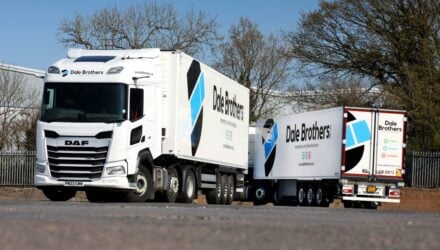A 2030 Phase Out target for banning new ICE van sales is unachievable, while the same target for cars is a major risk unless the Government matches its ambitious targets with additional support measures.
The BVRLA has shared a fleet industry perspective after the Department for Transport confirmed that the Government is committed to reinstate the 2030 Phase Out deadline for cars. A consultation is expected from late September this year. The position on vans remains unclear.
The consultation is expected to focus on defining what specifications a car or van must have to be officially categorised as a ‘hybrid’ which can continue to be sold from 2030-2035. In conjunction with the ZEV mandate, the Phase Out timings create a period from 2030-2035 where it is currently unclear which non-ZEV models could be sold in the UK.
Gerry Keaney, BVRLA Chief Executive, said: “The ZEV mandate timetable and 2030 Phase Out target for cars present a major risk unless we see much greater government support to stimulate new and used BEV demand and better charging infrastructure.”
The consultation is expected to cover cars and vans. Through its involvement with the Zero Emission Van Plan* the BVRLA has been communicating the challenges facing electric van adoption with industry and government.
“When it comes to electric van adoption, the lack of suitable BEV LCV product in – or about to hit – the UK market means the fleet sector will not be able to reach a 2030 Phase Out target,” added Keaney.
The new government must soon make clear its position on whether diesel van production will be banned by the end of the decade, says FleetCheck, otherwise fleets will be left in an “impossible” situation.
The Labour election manifesto pledged to reinstate the internal combustion engine (ICE) ban for cars to 2030, something to which it has recommitted in recent days, but has yet to clarify whether the move will also apply to vans.
Peter Golding, managing director at FleetCheck, said: “While electric car adoption by fleets has generally been a considerable success and the 2030 phase-out is absolutely viable, almost the opposite is true of electric vans.
“Compromises over range, payload and charging times mean that fleet sales of new electric vans are struggling to rise above 5% and there appears to be limited prospects of this changing dramatically unless that is some kind of unforeseen paradigm shift.”
He explained that the objections fleets had to electric vans were purely practical, with their use for anything other than local, light duty work proving questionable.
“Fleets are looking at the ZEV Mandate – which will see electric van production rise from 10% of sales this year to 70% by 2030 – alongside the potential 2030 production ban, and they just can’t foresee how the situation is going to be resolved.
“This is not a scenario where fleets are against zero emissions vehicles – almost all want to play their part in creating cleaner air and minimising the impact of climate change – but they believe that the electric vans on offer currently are simply not fit for their needs.
“For many fleets, 2030 is less than one typical van replacement cycle away, and the lack of certainty is leaving them in an almost impossible situation.”
He said that there was a credible argument that the 2030 ICE ban on vans was essentially symbolic anyway, given the planned impact of the ZEV Mandate on diesel van availability.
“However, almost no-one I speak to in the fleet sector seems to think that the van ZEV Mandate can be maintained. You cannot force companies to buy vehicles they don’t want. Certainly, we speak to more fleets that are planning to continue to operate diesel vans in perpetuity than those who see electrification from 2030 as a viable option.”
There were three potential solutions that could start to move the dial substantially, Peter added – taxation moves that provided an undeniable incentive for van electrification in the same manner as benefit-in-kind taxation has done for electric cars, a massive improvement in electric van technology, or dramatically lower electric van pricing.
“The fact is that none of these developments are likely to happen, at least by 2030. There are not really any carrots that the government or manufacturers can offer that look likely to change the mind of fleets who are dead set against electrification on practical grounds.
“The only other option that remains in this situation is for the government to effectively tax diesel vans out of existence but, given the level of resistance from businesses, the VED rate imposed would have to be very high rather than simply tweaked. The question is whether the government would want to pursue what is likely to be a deeply unpopular policy.”
The best option at this point in time would be for the government, fleets and operators to have an in-depth conversation about electric vans, how their role can practically be increased over time, and what shape official policy should take, Peter added.
“At the moment, it does look very much as though government policy is diametrically opposed to practical fleet considerations and, at some point, something will have to give.”
Ian Hare, Managing Director of Motor Management said in an article published last week in Fleetpoint, said, “It is clear that the government needs to provide a range of support measures to assist the transition further although the ZEV mandate already in place mandates 80% EV production by 2030. And quite a few OEMs have declared that they will be fully electric before 2030 anyway.”



















